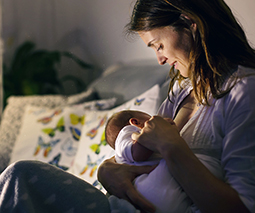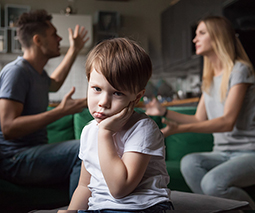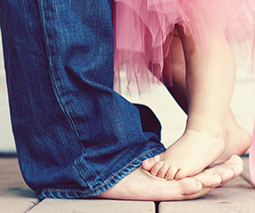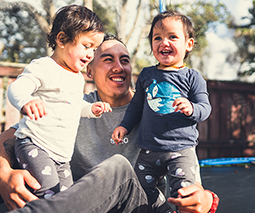Science has discovered yet another type of parent

Spending too much time and money on your kids now has an official name: intensive parenting. It’s the latest parenting nomenclature in a culture already drowning in labels.
Hello helicopter/attachment/tiger parents!
Introducing the intensive parent
How helpful these terms are to the parental psyche – specifically the increase in stress – is controversial, (and probably a post for another time) but according to researchers at Cornell University, 75 percent of us are intensive parents, and that’s not skewed by gender or class.
Defining behaviours of the intensive parent include:
- arranging lots of extracurricular activities
- lots of time playing with your kids at home
- being genuinely interested in their thoughts and feelings
Now if you’re reading this and thinking, ‘Hey! What’s so abnormal about wanting to spend time connecting with my kids?’ I hear you. That’s exactly what I thought.
Put your money where your mouth is
The distinction, according to the research, is the pressure on ‘intensive’ parents to provide this time and the money for extracurricular activities, regardless of their ability to realistically do so.
In other words, intensive parenting requires lots of money and lots of time – two things many parents don’t always have ready access to.
And that means today’s intensive parent can be left feeling bad about themselves as parents if they’re not able to spend as much time or money as they’d like on their kids. You could even be left feeling that unless you do spend loads of money or time with your kids, that you’ve somehow failed them.
We need only to look at the recent glut of private schools in this country, to see how closely parents align money to a better quality education. This, despite the fact that it has been proven there is little discernible difference between the achievement of private school students and government school students.
The pressure on parents
The truth is, being a parent is hard work and we’re all just trying our best. But the pressures of this current ‘intensive parenting’ culture dictate that more money and more time automatically means better parenting, and ergo, better outcomes for our kids.
In the 2019 book, Love, Money and Parenting: How Economics Explains the Way We Raise Our Kids, the authors – both economists – analysed the results of PISA, an academic test of 15-year-olds around the world, along with reports from the teenagers and their parents about how they interact. They found that an intensive parenting style correlated with higher scores on the test. This was true even among teenagers whose parents had similar levels of education.
But that’s not the whole story. We know that helicopter parenting – hovering, the way some parents do on Zoom, for example, has its drawbacks. It can lead to kids who are less independent and more fearful.
But the authors of Love, Money and Parenting argue that the most effective parents are ‘authoritative’. These parents use reasoning to persuade kids to do things that are good for them. Instead of strict obedience, they emphasise problem-solving and independence — skills that will help their offspring in the future. And, yep, they are heavily invested in their kids.
Aren’t we all? No matter what parenting ‘style’ we use, or how much money we have to throw around, we’re all just doing our best to raise decent, successful, happy humans, right?
 Need some support to be the best parent you can be? Our Parent School parent coaching experts can help. Click to find out more or book a one-on-one session.
Need some support to be the best parent you can be? Our Parent School parent coaching experts can help. Click to find out more or book a one-on-one session.









